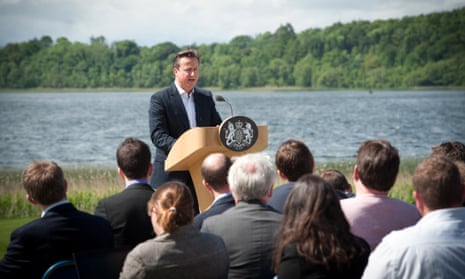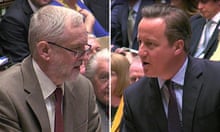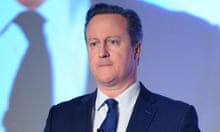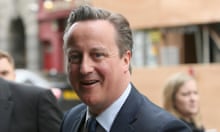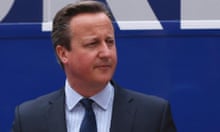David Cameron intervened personally to prevent offshore trusts from being dragged into an EU-wide crackdown on tax avoidance, it has emerged.
In a 2013 letter to the then president of the European council, Herman Van Rompuy, the prime minister said that trusts should not automatically be subject to the same transparency requirements as companies.
The EU planned to shine a light on the dealings of offshore bodies by publishing a central register of their ultimate owners but, in a letter unearthed by the Financial Times that remains publicly available on the government’s website, Cameron said: “It is clearly important we recognise the important differences between companies and trusts … This means that the solution for addressing the potential misuse of companies – such as central public registries – may well not be appropriate generally.”
The prime minister’s personal involvement in the EU-wide debate emerged as he continued to face questions about his family’s connections to Blairmore Holdings Inc, the offshore trust set up by his late father, the existence of which was revealed in leaked papers from the database of Panama-based law firm Mossack Fonseca.
The prime minister’s spokeswoman said that Downing Street had responded to allegations about Ian Cameron in the past.
When asked earlier if there was still any family money invested in the fund, a Downing Street spokeswoman had said: “That is a private matter.” But subsequently No 10 has issued a series of clarificatory statements.
Cameron made cracking down on tax avoidance a central theme of Britain’s presidency of the G8 group of wealthy nations in 2013, and the proposal for a central ownership register was one of the proposals discussed at the Lough Erne G8 summit in June of that year.
But when some in the EU wanted to extend the same principle to trust structures, Cameron said in his letter to Van Rompuy that tax authorities were already “gaining access to more information than ever before on trusts, especially offshore trusts,” through information-exchange agreements with tax authorities in different countries.
Instead of holding trusts to the same standards as companies by forcing them to make their end-owners publicly known, the prime minister argued that the EU should instead press the Organisation for Cooperation and Development and the G20 - the global bodies that have led progress on international tax reform - to agree a global framework for such information-exchange deals.
A government spokesman said on Wednesday night that, at the time the letter was sent, the prime minister was concerned that pursuing trusts would detract from other aims he felt were more important, such as tackling shell companies whose ultimate owners are hidden.
The spokesman added: “In the subsequent negotiations, we were able to secure a sensible way forward which ensures that trusts which generate tax consequences have to report their ownership to HMRC.”
However, campaigners for tax transparency argue that by being forced to reveal their ownership privately to the tax authorities, rather than make it public, trusts can avoid the scrutiny of civil society.
Richard Burgon, a shadow Treasury minister, said: “Another day and another story emerges which exposes what the Conservative party really thinks in its heart of hearts about tackling tax avoidance.
“It’s time that they treated tax avoidance as the serious matter people across Britain know it is. And one way they can do that is to stop trying to block or undermine measures to tackle it.”
Judith Sargentini, a Dutch MEP who led the European parliament’s work on the draft law, told the Financial Times that the UK’s argument against a crackdown on trusts was that it would be an invasion of privacy - and that trusts have a special role in Britain in helping families manage issues around inheritance.
“I saw it [the British position] as a danger and a possible loophole,” Sargentini said. “Some member states saw it as an underhand way for the UK to get an advantage.”
